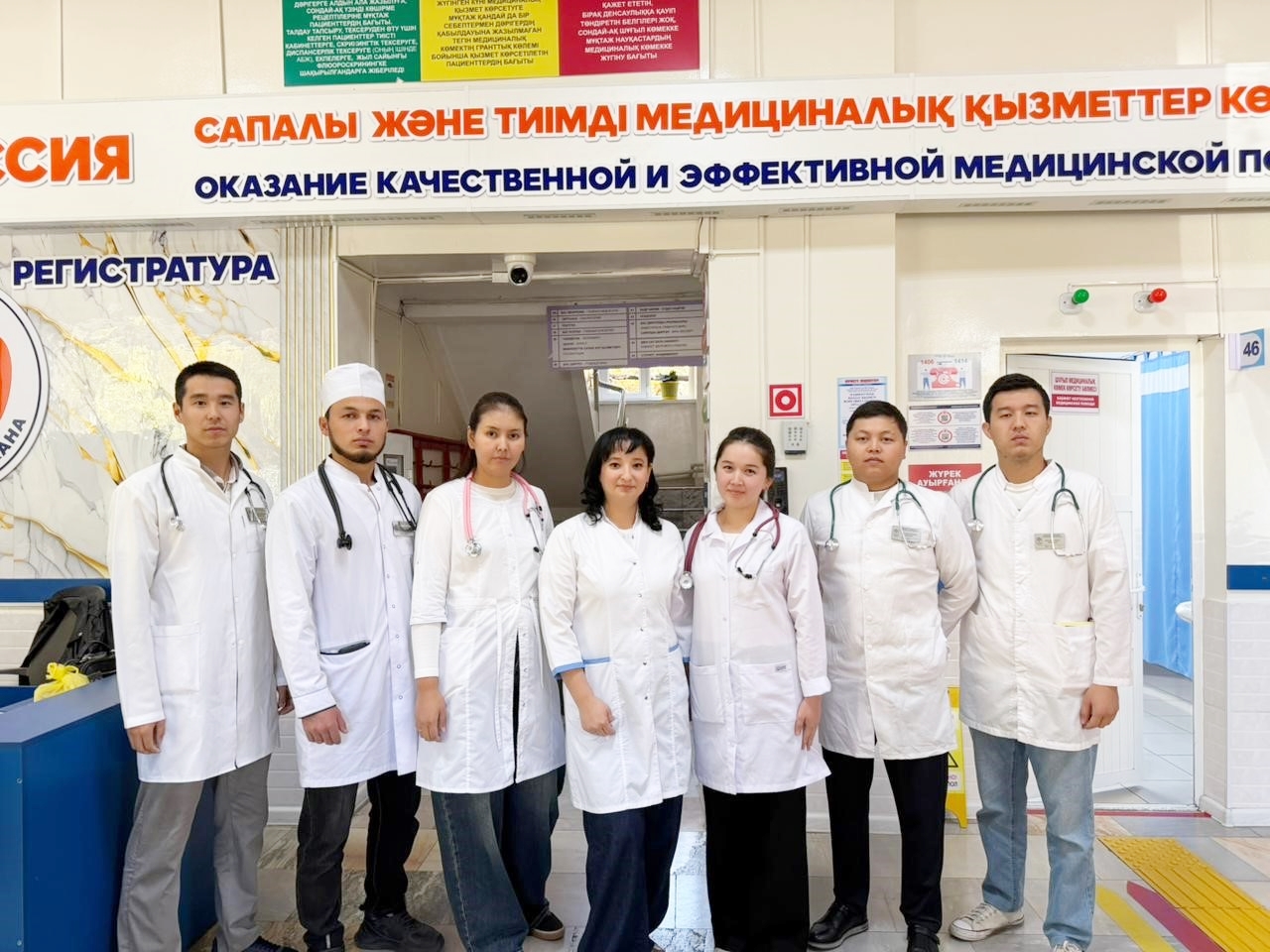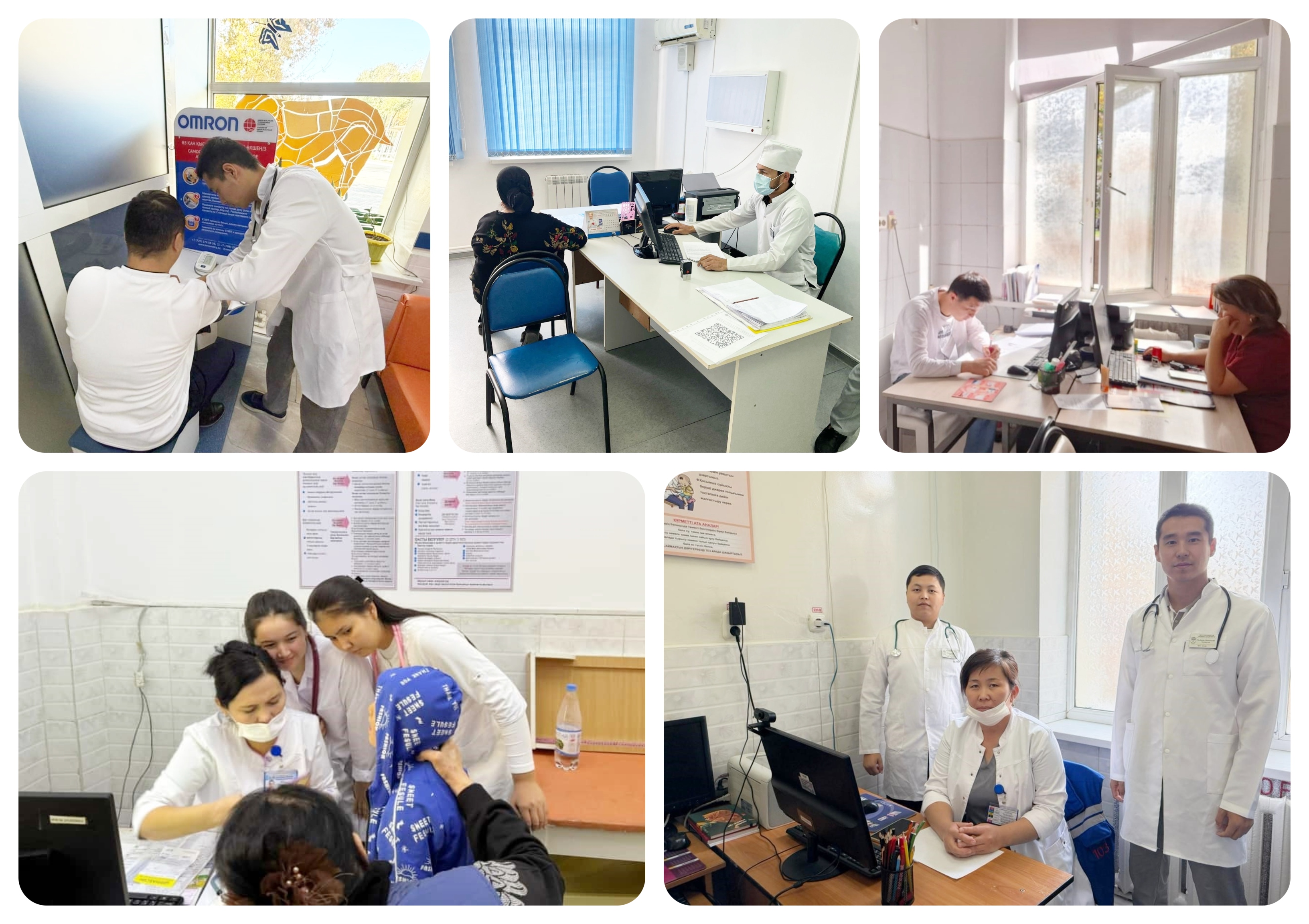Career Guidance Event: “A Day in the Life of a Doctor”

Under the guidance of Dinara Sabyrzhanovna Narzullaeva, Assistant at the Department of Family Medicine, a career guidance event titled “A Day in the Life of a Doctor” was held with the participation of medical interns from group ІЖТДҚ 20-24. The purpose of the event was to introduce students to the daily life and professional responsibilities of future medical professionals.
Familiarizing students with the medical profession is an essential process in medical education and career orientation. The main goal of the event was to provide medical interns with a comprehensive understanding of a doctor's daily work and to highlight the specific features of the medical profession, especially that of a general practitioner (GP).

During the event, the interns received valuable insights into the duties, responsibilities, and challenges faced by doctors in their practice.
The importance of the medical profession in society can be explained through the following aspects:
1. Saving and improving lives
Doctors help preserve life and improve its quality through accurate diagnosis, treatment, and care for patients.
2. Foundation of the healthcare system
Doctors are the backbone of the healthcare system, ensuring its effective operation in clinics and hospitals.
3. Prevention and education
Doctors play a vital role in disease prevention, raising public awareness, and promoting healthy lifestyles.
4. Ethical and humanitarian responsibility
Doctors must adhere to ethical standards and demonstrate compassion and responsibility toward every patient.
5. Scientific research and innovation
Doctors contribute to medical progress through research and the development of new treatment methods and technologies.
6. Social protection
They help reduce social inequality by providing access to essential healthcare services.
7. Professional prestige
The medical profession is highly respected and serves as an inspiring example for younger generations.
8. Crisis response
During emergencies such as epidemics or natural disasters, doctors play a crucial role in protecting public health.
9. Teamwork
Doctors work collaboratively with nurses, pharmacists, lab technicians, and other healthcare professionals to deliver effective patient care.
10. Personal development
The medical profession fosters continuous learning and personal growth, encouraging doctors to constantly improve their knowledge and skills.
Thus, the role of doctors is vital not only for public health but also for advancing social responsibility and scientific progress.
Through this event, the medical interns gained a deeper understanding of the general practitioner’s role and were introduced to the processes involved in ambulatory care and patient management. We believe that this experience will greatly assist the interns in shaping their future path in the field of medicine!